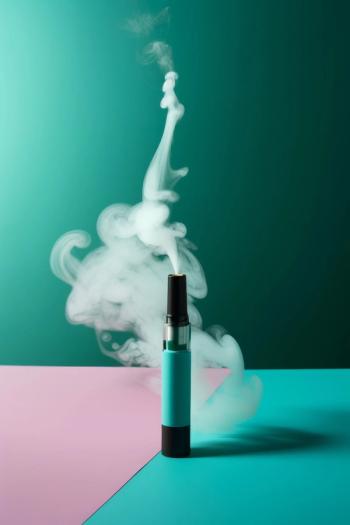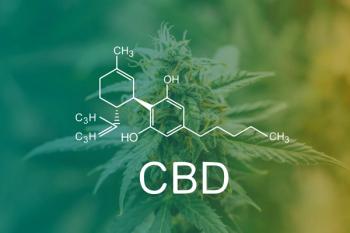
Senate Committee has released the text of 2024 Farm Bill, with changes to hemp regulations
The U.S. Senate Committee on Agriculture, Nutrition, & Forestry has introduced the Rural Prosperity and Food Security Act, which will serve as the Senate’s draft for the 2024 Farm Bill.
This article has been updated on December 4, 2024 with the addition of comments from Kim Anzarut, Lo Friesen, and Adam Jacques.
The U.S. Senate Committee on Agriculture, Nutrition, & Forestry has introduced the Rural Prosperity and Food Security Act, which will serve as the Senate’s draft for the 2024 Farm Bill. The bill sets forth new regulations for the cultivation and harvesting of hemp. In one notable change, the new bill revises the definition of hemp. While hemp since the 2018 Farm Bill has been defined as Cannabis sativa L. containing no more than 0.3 percent delta-9 THC by dry weight, the new bill strikes “delta-9” and applies the limit of 0.3 percentage by dry weight to “total THC.”
This means regulators will make no distinction between the different types of THC in the plant. This decision may close the so-called “loopholes” that relate to minor cannabinoids such as delta-8 THC, which have been making their way into food and beverage products throughout the country. A number of states have taken matters into their own hands, many outright banning products containing intoxicating hemp cannabinoids such as delta-8 THC. This revision will most likely make hemp farming and processing more difficult as well since it creates a higher standard for THC limits.
Kim Anzarut, founder of Allay Consulting, stated, "The inclusion of "total THC" in the definition of hemp as 0.3% or below is a significant shift that will undoubtedly make compliance more challenging for the industry. This change closes loopholes that previously allowed products to bypass regulations by focusing solely on delta-9 THC, but it also creates new hurdles for hemp growers and processors." Anzarut added, "Achieving these stricter limits will likely require additional resources, tighter testing protocols, and possibly even changes to cultivation practices. While it’s a step toward more consistent regulation, it underscores the urgent need for standardized testing methods and better support for the industry to adapt."
Delving into the dynamics of THC and cannabinoid ratios, Chief Geneticist at AgSense LLC, Adam Jacques, commented, "CBD and THC function as a standard ratio, within a controlled channel based on their type. Type 1 THC, 2 1:1, 3 'hemp' CBD. There is not some special hemp plant that exists outside of these rules. When your CBD level increases in type 3 your THC will increase. That's been proven through many trials, it's the basic function of these plants. If you want 30% CBD you will have to deal with the 1%+ THC. We find the kind of sweet spot to not go over the .3% threshold is 11-15% CBD." Jacques continued how, "There is no natural way or synthetic way of stopping the plant from doing this. I have had success dropping numbers with the addition of ruderalis, but we are just dropping numbers down for the sake of meeting a 'law'. Once that oil is harvested from the plants the ratio will stay the same as lesser testing types. It costs farmers more land, water, labor, seed, time to grow inferior plants to meet a .3% threshold which is a completely arbitrary number that has no scientific basis in anything. That's the facts on that."
Providing her perspective on the updated Farm Bill text, Lo Friesen, founder, CEO, and Chief Extractor of Heylo expressed, "While this will mean a challenging transition for the national hemp market, I'm hopeful that this will encourage states to get involved with better regulating hemp CBD products and better support the current legal cannabis markets. Hemp derived THC products have become widely available to consumers in an unregulated environment." Friesen added how, "It's bad for consumers and bad for the legal cannabis markets. I hope we can find a middle ground where the hemp industry can continue to supply consumers with non-intoxicating products, like CBD products or industrial hemp products, and consumers can then turn to legal and regulated markets for THC products."
What may help compliance is the proposed Certified Seed Pilot Program in the bill, in which, “The Secretary may, in up to 5 States or Indian tribes, establish a pilot program under which the State department of agriculture of a selected State, or the equivalent Tribal government agency, may certify genetic purity…and identity as to variety…of varieties of seeds that have been bred to produce plants with a total tetrahydrocannabinol concentration (including tetrahydrocannabinolic acid) of not more than 0.3 percent on a dry weight basis.”
The new bill would also create a separate definition for Industrial Hemp and different licensing schemes for producers of industrial hemp. The definition of industrial hemp used in the bill is:
“the plant Cannabis sativa L. if the harvested material—
(A) is only—
(i) the stalks of that plant, fiber produced from those stalks, or any other manufactured product, derivative, mixture, or preparation of those stalks (except cannabinoid resin extracted from those stalks);
(ii) whole grain, oil, cake, nut, hull, or any other compound, manufactured product, derivative, mixture, or preparation of the seeds of that plant (except cannabinoid resin extracted from the seeds of that plant); or
(iii) viable seeds of that plant produced solely for production or manufacture of any material described in clause (i) or
(ii); and
(B) will not be used in the manufacturing or synthesis of natural or synthetic cannabinoid products.’’
With the separate definition for industrial hemp, there is a separate license for industrial hemp in which producers are not required to undergo a background check when applying for the license. There are also relaxed regulatory requirements for testing compliance of industrial hemp products.
The full bill can be read
Newsletter
Unlock the latest breakthroughs in cannabis science—subscribe now to get expert insights, research, and industry updates delivered to your inbox.




